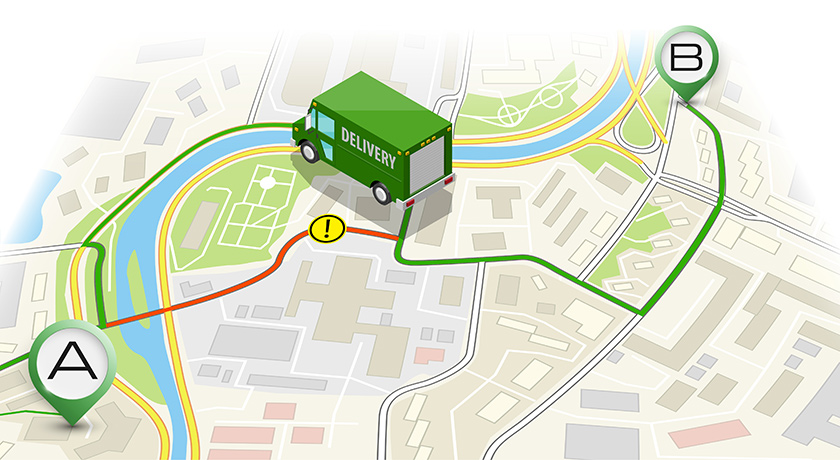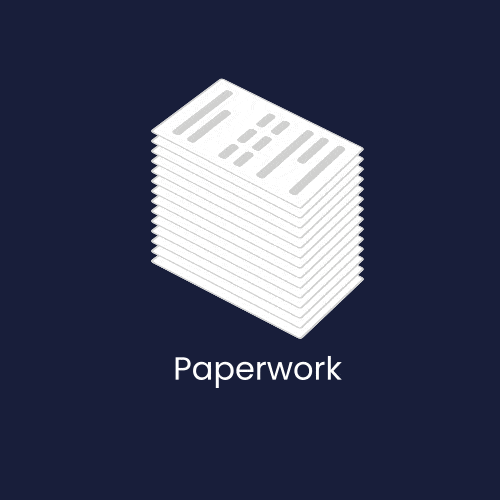
Route optimization is a critical aspect of transportation planning and logistics management. It involves planning the most efficient route for delivery vehicles to maximize productivity and minimize travel time, fuel consumption, and operating costs. Route optimization is essential for businesses of all sizes, from small-scale local operations to large international companies. In this blog post, we will discuss the various benefits of route optimization, including reducing carbon footprint, strategic transportation planning, reducing the risk of delays, reducing fuel costs, and increasing delivery efficiency.
1. Reducing carbon footprint
Reducing carbon footprint is one of the most significant benefits of route optimization. Carbon emissions from transportation are one of the major contributors to climate change. By optimizing the delivery route, businesses can reduce their carbon footprint by minimizing the distance traveled, fuel consumption, and emissions from vehicles.
Route optimization software uses advanced algorithms to calculate the most efficient route based on a range of factors, including traffic congestion, delivery time windows, and vehicle capacity. By optimizing the delivery route, businesses can significantly reduce their carbon footprint and contribute to environmental sustainability.
2. Strategic Transportation Planning
Route optimization is an essential part of strategic transportation planning. Effective transportation planning is critical for businesses to stay competitive in the global marketplace. By optimizing the delivery route, businesses can improve their transportation operations’ efficiency, reduce costs, and increase customer satisfaction.
Route optimization software provides businesses with the tools they need to plan and execute their transportation operations more effectively. By analyzing historical data, route optimization software can identify areas for improvement and provide recommendations for optimizing delivery routes. This data-driven approach enables businesses to make informed decisions about their transportation operations and develop more effective transportation strategies.
3. Reducing the risk of delays
Delays in transportation operations can have a significant impact on businesses’ bottom line. Delays can result in increased operating costs, decreased customer satisfaction, and lost revenue. By optimizing the delivery route, businesses can reduce the risk of delays and improve their transportation operations’ reliability.
Route optimization software can identify potential delays in the delivery route, such as traffic congestion or road closures, and provide alternative routes to avoid these issues. By using real-time data to adjust delivery routes, businesses can ensure that their deliveries arrive on time and reduce the risk of delays.
4. Reducing fuel costs
Reducing fuel costs is another significant benefit of route optimization. Fuel costs can account for a significant portion of transportation operating costs, and optimizing the delivery route can help businesses reduce their fuel consumption and save money.
Route optimization software can calculate the most fuel-efficient route based on a range of factors, including vehicle type, load capacity, and traffic conditions. By using the most efficient route, businesses can reduce their fuel consumption and operating costs while still meeting their delivery requirements.
5. Increasing delivery efficiency
Increasing delivery efficiency is another key benefit of route optimization. By optimizing the delivery route, businesses can increase the number of deliveries they can make in a day, improve their delivery times, and reduce their operating costs.
Route optimization software can identify the most efficient route for each delivery, taking into account factors such as delivery time windows, vehicle capacity, and traffic conditions. By using this data-driven approach, businesses can make more deliveries in less time and improve their overall delivery efficiency.
Conclusion
In conclusion, route optimization is essential for businesses looking to improve their transportation operations’ efficiency, reduce costs, and increase customer satisfaction. By optimizing the delivery route, businesses can reduce their carbon footprint, engage in strategic transportation planning, reduce the risk of delays, reduce fuel costs, and increase delivery efficiency.
nuVizz Route optimization software provides businesses with the tools they need to make informed decisions about their transportation operations and develop more effective transportation strategies. By using a data-driven approach to optimize the delivery route, businesses can improve their overall transportation operations’ efficiency, reduce costs, and improve their bottom line
